Share
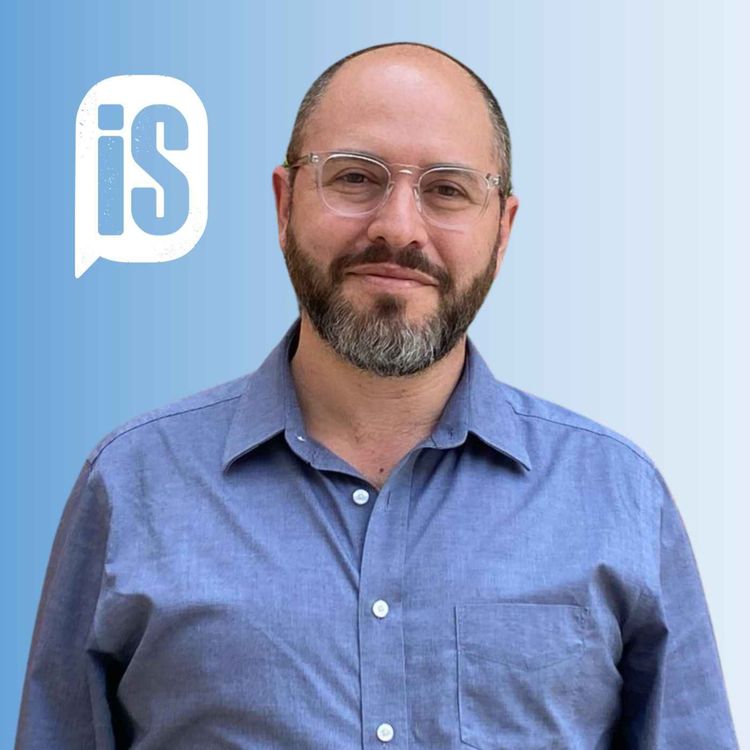
Israel Story
142: Wartime Diaries - Mishael Zion
Next week, millions of Jews around the world will sit down at their Passover tables, for what will invariably be a very different kind of seder. The timeless question of how this night, or this Pesach, is different from all other nights, and all other Pesachs, has gained an entirely new - and tragic - dimension since October 7th. And few, if any, have thought about this matter more than forty-three year old Mishael Zion, a liberal Orthodox rabbi and Jewish educator from Jerusalem.
In 1997, Mishael’s father - Noam Zion - together with his friend David Dishon - published a popular English-language Haggadah called “A Different Night.” Seven years later, Mishael joined forces with his dad in creating an Israeli version - HaLayla HaZeh: Haggadah Israelit. And this year, two decades after that Israeli Haggadah came out, Mishael and his father decided to update it, for the first post-October 7th seder.
The end song is Chad Gadya ("One Little Goat") by Chava Alberstein.
To purchase a digital copy of the Israeli Haggadah in Hebrew, click here.
To download the Zion Haggadah supplement in English, Hebrew, Spanish, Portuguese, German and French, click here.
Stay connected with us on Facebook, Instagram, and by signing up for our newsletter at israelstory.org/newsletter/. For more, head to our site or The Times of Israel.
More episodes
View all episodes

92. 167: Flower Power
27:05||Season 1, Ep. 92Black markets, propaganda, and ... wildflowers - the story of the most successful marketing campaign in Israel's history.Our end song is Waltz Lehaganat HaTzome'ach ("Waltz for the Protection of the Flora") by Jane Bordeux and Aya Zahavi Feiglin.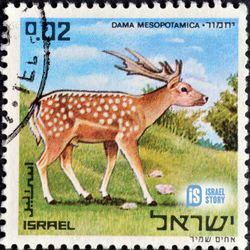
91. 166: Frankly, My Deer
53:10||Season 7, Ep. 91Fine caviar, Persian carpets, the malignant presence of a possibly former-Nazi zookeeper, a cameo from a sensuous Mossad agent and cold-blooded murder. This is the improbable, totally true story of a flying Dutchman and some of the last "olim" to leave Iran before the Revolution. Our end song is Gan Eden Shel Ha'Adam ("Man's Paradise") by Gilad Segev.Image licensed from Dragan Ilic at Dreamstime.com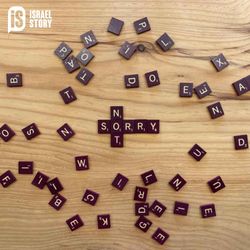
90. 165: Sorry, Not Sorry
43:52||Season 7, Ep. 90A never-aired Yom Kippur episode from before the war that asks what does it mean to be sorry?Our end song is Lu Yehi ("Let It Be") performed by HaGashash HaHiver.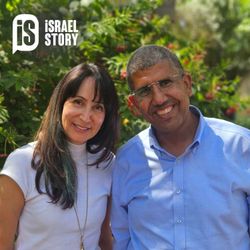
89. 164: Wartime Diaries - Pazit Noyberger and Radwan Abu Arara
22:13||Season 7, Ep. 89In the messy tension of war, Pazit had to make a life-or-death decision for someone else.The end song is "Hymn to the Soul" by LAOR.
88. 163: Iran to Israel, Tehran to Tel Aviv
16:17||Season 7, Ep. 88In the middle of a war, we reached out to the other side. They answered.Note: The content in this episode was written by real people. To protect the anonymity of participants, some audio voices were produced by AI.Episode art credit: Reuters.The end song is Dror Yikra ("Proclaim Freedom") performed by Mike Rauss, Yael Dagon, and Ardavan Hatami.
87. Bonus: 90 Seconds
06:05||Season 7, Ep. 87Just a moment to decide what's most important.The end song is Od Chozer HaNigun ("The Melody Returns") by Chava Alberstein.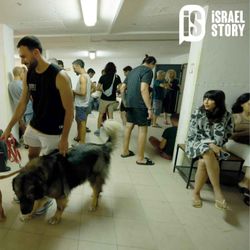
86. 162: Israel to Iran, Tel Aviv to Tehran
11:34||Season 7, Ep. 86We thought the people of Iran should get the chance to hear the voices of regular Israelis, describing daily life in this war within a war.And we want to hear from Iranians too. What is your daily life like right now? What do you want us to know? Send us your voice notes on social media, Whatsapp (+972-58-540-8822), or Signal (@JayLevi.59).Episode art photo credit: Yossi ZamirThe end song is Boker Tov Iran ("Good Morning Iran") by Aviv Geffen.
13. 34: The Hasbara Hero
33:35||Season 3, Ep. 13While all kinds of very unwanted things are flying to Israel from Iran these days, we wanted to remind you of someone wonderful who came here from Iran.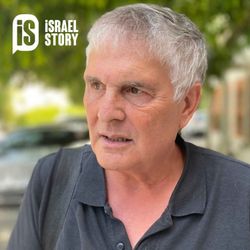
85. 161: Wartime Diaries - Amir Ofer
17:11||Season 7, Ep. 85An unlikely intergenerational friendship between two soldiers tasked with freeing civilian hostages.The end song is HaCholmim Achar Hashemesh ("Those Who Dream of the Sun") performed by David Lavi and Tamar Philosof.